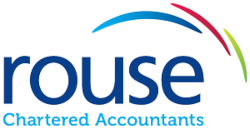It is worth noting that the government continues to challenge tax planning that they deem abusive and the following are all statutory reliefs which can be used as they were intended, to assist businesses to improve cash flow for growth.
So here are some tax planning ideas for you…
Maximise tax relief for capital expenditure
Before the end of your accounting period you should seek to make use of the Annual Investment Allowance (AIA) and other capital allowances.
The AIA provides a 100% deduction for the cost of most plant and machinery (not cars) purchased by a business up to an annual limit and is available to most businesses. This means that you can deduct the full value of an item that qualifies for AIA from your profits before tax. This could include tax relief on big ticket items such as ovens, fridges, as well as, against refurbishment costs.
Also, consider whether you can bring forward capital expenditure to utilise your full allowances? This will be particularly useful where you are likely to exceed the limits in the following accounting year/s. The current limit is £200,000 on qualifying expenditure from 1 January 2016. There are rules dictating when capital allowances can be claimed and the decision should of course be considered from a strategic perspective, as well as a tax one.
Operating a family run restaurant?
You should review the remuneration of family members. Whilst increasing dividend tax rates have slightly reduced the benefits, a low salary/high dividend strategy remains more tax efficient than PAYE if you have the choice of reward strategy.
Some individuals may look to transfer some of the personal allowance between a husband and wife. Whilst this doesn’t offer a high level of tax saving it still can be worthwhile. So too, can transferring property ownership.
Bring forward expenses
The more expenses you have, the less profit you have to pay tax on. Therefore, bringing forward some expenses into the current tax year can be a worthwhile exercise. For example, you could:
- Make provisions against slow-moving stock –You can make a specific provision against slow-moving, damaged or obsolete stock, but a general provision is not allowed against tax. You might be able to change the way you value stock, but great care should be taken.
- Make additional pension fund payments –If you pay directly into your employees’ pension scheme there will be no National Insurance Contributions to pay.
- Increase ‘discretionary’ expenditure –This could include spending on advertising, building maintenance or donations to charities.
- Start a new business that will make a loss in its first year –If you are looking for a new venture, you could utilise the start-up losses to offset against the profit from your current business.
Wider tax opportunities…

Oscar Wingham, Tax Partner, comments, “These are just some of the many tax planning opportunities available to you and your business. As with all forms of tax planning, there may be wider aspects to consider when reviewing which are the most viable for you. We would therefore advise that you consult with our tax advisors for professional advice before making a decision.”
Contact us about tax planning considerations
If you need professional advice on the tax planning opportunities that are right for your business, we can help. Contact us today to arrange a meeting with one of our tax advisors.

Award-winning chartered accountants offering tax, audit and advisory services.


